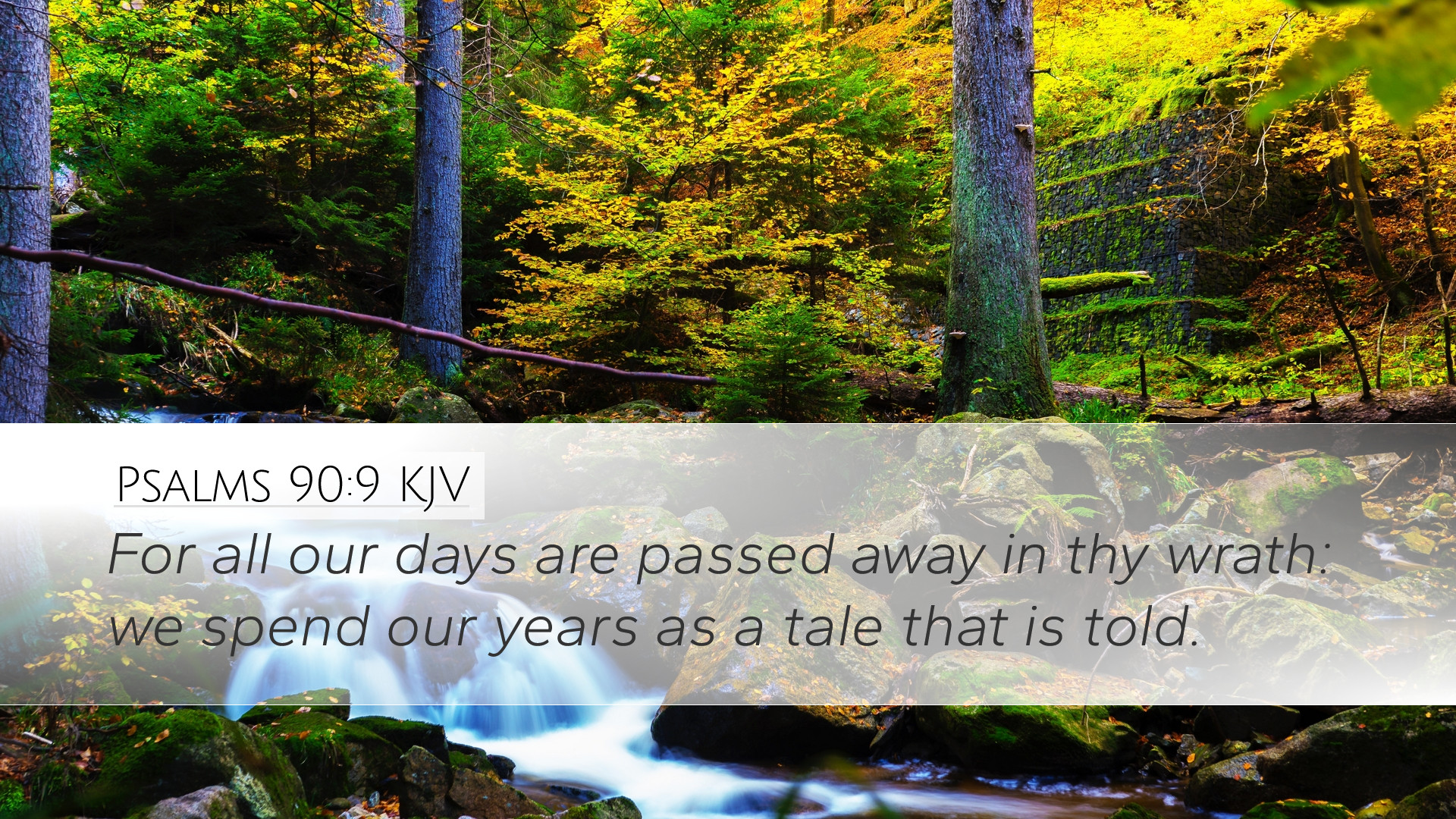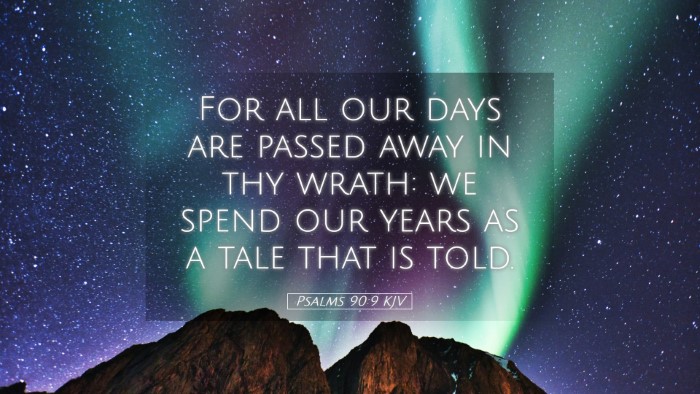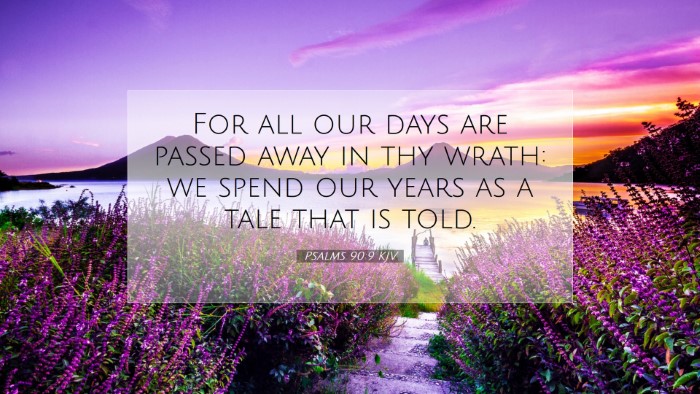Psalms 90:9 Commentary
Verse (Psalm 90:9): "For all our days are passed away in thy wrath: we spend our years as a tale that is told."
This verse presents profound reflections on the brevity of human life set against the backdrop of God's eternal nature and holiness. The psalmist, traditionally attributed to Moses, is providing insights into the human condition—particularly the transient nature of our lives and the impact of divine displeasure.
Contextual Background
The entire Psalm 90 is a meditation on mortality and the majesty of God as the eternal Creator. The psalm opens with a recognition of God’s everlasting presence, juxtaposed with the fleeting existence of humanity. The psalmist draws upon Israel's wilderness experience and the reality of God's judgment, reflecting on the consequences of sin and rebellion.
Theme of Wrath
Matthew Henry emphasizes the significance of God's wrath in this verse. He articulates that "our days are passed away in thy wrath" suggests the seriousness of sin, which brings about divine displeasure. It is vital for believers to understand that the brevity of life and the sorrow that accompanies it are, in part, responses to humanity's moral failing.
Henry further explains that every day lost to sin is a glimpse of God's disfavor, urging us to consider how we are living before God. The "wrath" mentioned can also be seen as a reminder of the Israelites in the desert, who faced divine judgment due to their disobedience.
Life’s Fleeting Nature
Albert Barnes focuses on the metaphorical language of life being "as a tale that is told." He identifies this imagery as reflective of the transient and often insubstantial nature of human existence. Just as a story can be quickly narrated and just as quickly forgotten, so too are our lives—limited by time and ultimately external to the eternal narrative of God's everlasting kingdom.
Barnes notes that this verse encourages believers to reflect on how they utilize their time. The implications of living a life that acknowledges brevity lead to a lifestyle of intentionality, where each moment should be treasured in light of eternity.
Existential Reflection
Adam Clarke delves into the existential implications of the text. He interprets "we spend our years" as a commentary on how we allocate our time and resources. Clarke points out that while life may feel long during hardship, it ultimately amounts to a tale—that which we may narrate to others, but fundamentally, we cannot grasp it fully since it is governed by the eternal hand of God.
Clarke posits that the acknowledgment of life's brevity should lead not only to solemn reflection but also to a deeper appreciation for the grace and wisdom God bestows in our days. This realization should inspire believers to make their lives meaningful, seeking ways in which their lives can reflect God's glory even amid struggles.
God’s Eternality vs. Human Transience
The psalm contrasts the eternity of God with the mortality of man. While God remains unchanged and enduring, human life is described using temporal language—a stark reminder of our fragility. Each public domain commentator brings to light the understanding that human existence is a sacred gift yet subject to God’s sovereign will.
- Matthew Henry: God’s wrath serves as a reminder of our sinfulness. Our recognition of mortality should lead us to repentance and a pursuit of holiness.
- Albert Barnes: Our years may be but a tale, encouraging reflection on how we are writing our own stories in light of God’s narrative.
- Adam Clarke: Emphasizes that understanding our mortality should compel us to live in accordance with God’s will, cultivating a purposeful life.
Application for Believers
In summary, Psalms 90:9 offers a poignant reminder of life’s brevity and the serious implications of God’s holiness. For pastors and theologians, this verse underscores the necessity of preaching the gospel that emphasizes the importance of reconciliation with God, especially in light of His judgment.
For students and scholars, it provides fertile ground for theological exploration of themes such as sin, grace, and human existence juxtaposed with divine eternity.
Concluding Thought: Reflecting upon Psalms 90:9 encourages believers to live meaningfully, seek God’s favor, and remember the ultimate purpose of life in relation to the divine narrative. Time is a gift, and how it is spent will echo in eternity, making our response to God’s call exceedingly vital.


